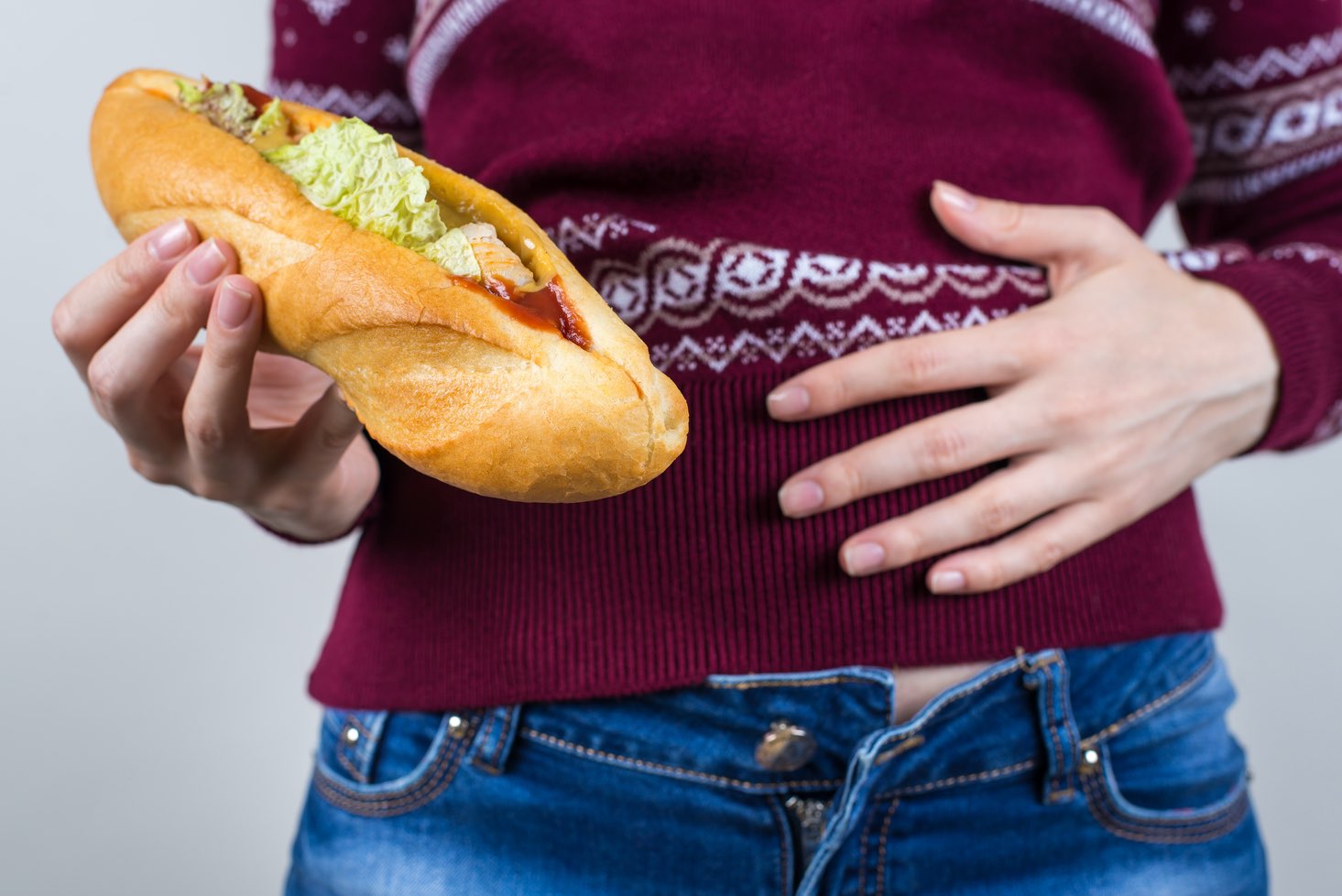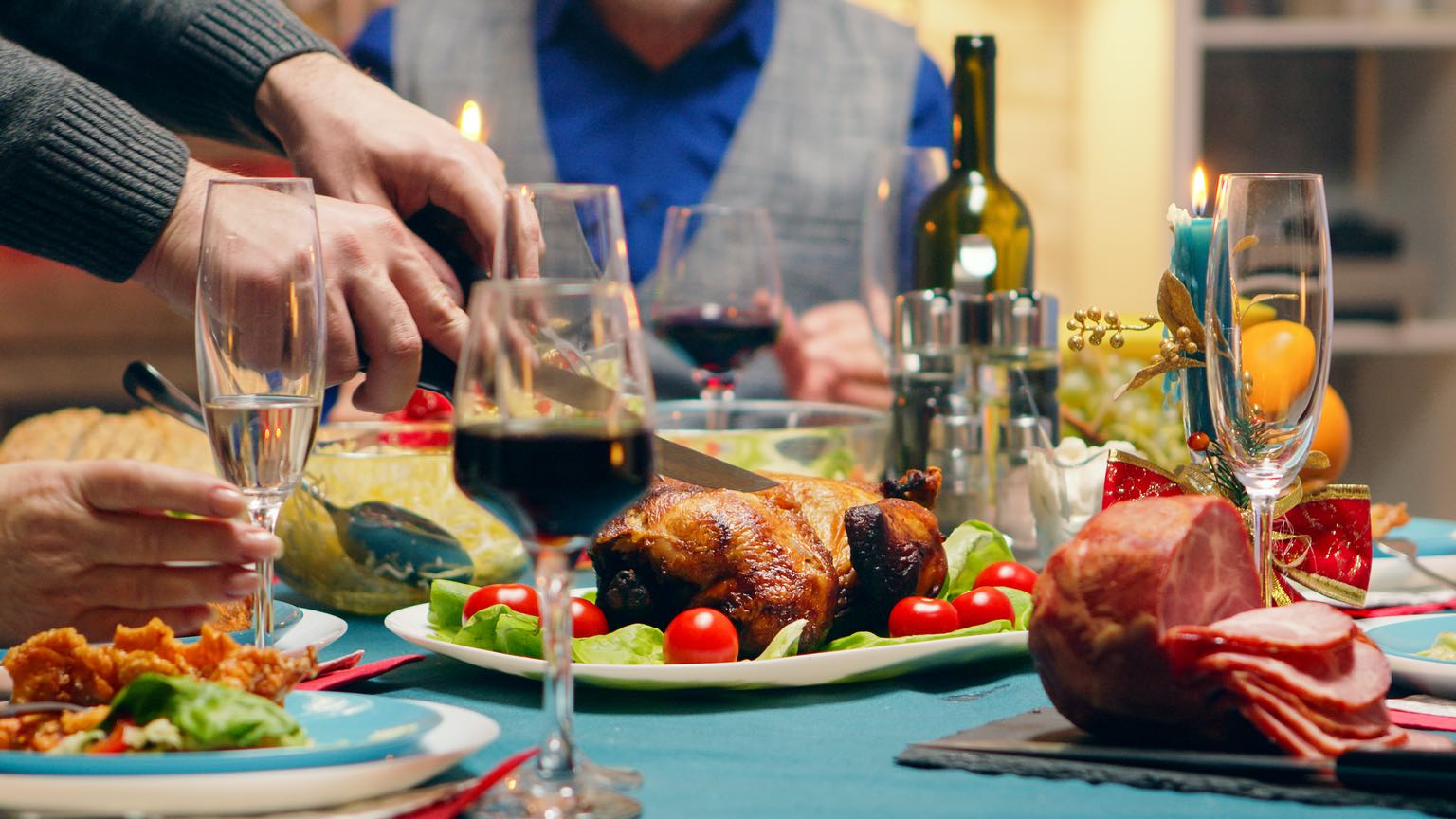'Tumaba ka': Finally making peace with gaining weight over the holidays
I don’t have any scientific evidence to prove it but there’s something about cold weather coupled with constant exposure to family and friends that’s conducive to nostalgia. I’ve been spending most of my days poring over physical and Facebook photo albums for the sake of looking back at everything I’ve been through. While the exercise is meant to evoke positive feelings—and believe me, it does most of the time—there are certain instances when I just can’t help but feel sorry for myself.
My weight fluctuated rapidly and drastically, teetering between baby face with full cheeks and hollowed-out burnout in a few months. It served as a signal to everyone who saw me that I possessed an insecurity that was rotting me from the insides but lacked the willpower to make any long-term changes. In fact, the sole certainty my weight has ever known is that it would see a steep increase during the holidays and it would eviscerate my self-esteem well into the next year.
Food, a social affair even in the absence of special occasions, becomes central to the Filipino celebration. Each dish we deck out not only brings us together but symbolizes what we wish to manifest in our lives: long life for pancit, endless blessings for round fruits—you know the drill. Since it’s practically impossible to opt out of eating, I’ve gotten used to seeing my pudge grow more prominent in the mirror. I watch the number of the scale rise and monitor its repercussions: one extra kilo means my jeans fit too snug; another means I gain a double chin I’d need to cover up with a choker, and so forth; yet another means I’m not seeing any of my friends until February. But sadly, it has never hurt less.

To add insult to serious injury, relatives are known to point it out rather relentlessly. We all know this: A distant aunt or uncle we have no memory of is often the first to say that we’ve put on weight or we were much cuter as kids. Sometimes, someone else chimes in to agree.
“I honestly don’t know why they do it,” Triza Guerrero-Cheng told me when I asked her why this is often the case. She’s a mental health consultant and clinical supervisor with over a decade of experience in behavioral tech and therapy and yet, she can’t even rationalize such remarks. “Maybe it’s because you haven’t seen each other for a while so the easiest thing to comment on is what you see with your eyes or how the person looks. It’s their way of starting the conversation if they don’t know what you’ve been up to.”
This can also be traced back to our societal fixation on physical appearance and our collective tendency to reduce women’s body types to trends. “We are so obsessed with who adheres to unrealistic, Eurocentric beauty standards: who’s attractive, who’s fit, who’s pretty. Most especially for young girls—it’s something that we’re conditioned to meet,” Triza adds.
Clarisse, a 26-year-old designer currently based in New York, tells me that this is something she constantly grapples with whenever she returns to the Philippines. “From experience, there is definitely a lot of expectation from people who have migrated to the States. For me, there’s this glorified idea that I became whiter, thinner, and more Westernized,” she says via email. “This actually started in my teens when my body was undergoing major changes in volume. I would get notes like ‘Wow, Clarisse. Tumaba ka' right off the bat without warning or even saying hi to me, from aunties and uncles who have really low sensitivity for boundaries.” It would often set the tone for their remaining conversations as well as how the rest of the night with them would go.
We should refrain from restricting our intake to adhere to an unforgiving, unrealistic societal ideal.
Elders are quick to deflect or blame us for our inability to take a joke that comes at our expense. If we’re extra unlucky, they can also react in rather unpredictable ways. Triza recommends using methods rooted in Dialectical Behavioral Therapy: “imagining yourself overcoming a situation effectively and rehearsing how you want that to go in your mind,” she explains, “like how tennis players practice the perfect serve in their head or how a singer would envision herself hitting all the right notes before a performance.”
Clarisse echoes a similar sentiment, telling me that she plans to “have a proper mindset by preparing before these events with the acceptance that body shaming is bound to happen and dissociating once it does happen.” To anyone else, this may sound like a defeatist approach but it doesn’t seem to be the case. In fact, she says that she’s excited to “put the best effort in how I look and focus on wearing something that is comfortable yet aesthetically pleasing to me instead.”
Maybe our ideal response is to let the words slide past us like we’re a non-stick pan and move on to the next topic. Or maybe it’s having a support person by our side that we can turn to as the conversation veers further south. Or it’s reassuring ourselves of the facts: that we’re so much more than our weight, or that we didn’t even gain as much—our relatives just have nothing else to talk about. It’s quite similar to the existing concept of manifesting: imagining the ideal outcome until we achieve it.

I acknowledge that total acceptance of the way we look is easier said than done. We may manage to evade invasive comments from elders but still feel empty inside. Our inner critics can’t be silenced as easily and could resurface with the slightest of triggers. The worst part is we know exactly where to hit ourselves where it hurts.
“In all honesty, all of my physical features are insecurities for me,” Kim, a 16-year-old student, opens up. “I was exposed to body issues around high school. I’d notice my arms getting bigger, my thighs kissing, and my back having bra bulges. I remember getting excited for the holiday feast, only for it to get ruined by the fact that I had gained weight and was starting to get even rounder.” Though this experience is as universal as it gets, it seems more tragic because it imprints on young and impressionable girls for the greater part of their lives.
I ask Kim if she’s overcome this struggle by now and if yes, how so. But of course, is anyone ever fully finished grappling with their body image issues? “I continue to face this struggle and just decide to cope with it. Now, I try to balance controlling my meals without depriving myself and having time to really get my body moving—taking a certain number of steps a day and drinking lots of water,” she shares. Depriving herself through crash diets, she says, has a history of leading to relapse.
Triza backs this up, saying that the act of mindful eating–“noticing your feelings before, during, and after eating”–could be the key to developing a healthier relationship with our bodies. “Emotions try to communicate messages to us about ourselves, about a situation [we’re in], and how we feel about it. Difficult events that trigger certain emotions may prompt us to use food as a numbing agent. But that doesn’t allow us to facilitate a healthy relationship with what we eat because we refuse to acknowledge what clarity it gives us.”
One extra kilo today means I am constantly surrounded by family and friends who consistently keep my heart and stomach full.
Instead of absentmindedly binging Netflix shows while eating something that’s obviously not good for us, we should eat only when and what our bodies need. If we’re drinking alcohol to run away from an unpleasant emotion, we could benefit from reassessing the role it’s playing in our lives and decide if there’s a need to move on to a healthier coping mechanism. Conversely, we should refrain from restricting our intake to adhere to an unforgiving, unrealistic societal ideal.
Unlike my other pieces, there’s no clear-cut way to tie everything together by the conclusion. I’m afraid I’m still very much a work in progress, with misplaced insecurities so quick to manifest I wake up one day with a void in me I fully realize why. I’m writing this right in the middle of the holidays, as I’m already putting on a few pounds because of all the family reunions taking place and the inevitable food trips that occur as a result.
But this time, if I mentally calculate how many calories I’m consuming mid-meal or lament a skirt back home that will surely not fit anymore, I try and catch myself. Reframe the way I’m thinking about the shifts happening inside of me. They might not always work and I don’t always stop my inner voice before it gets to me, but it helps to think of it this way.
One extra kilo today means I just ate a series of experimental homecooked meals my tita spent a minimum of 12 hours making. Another means I spent the week taking my lola around every restaurant that opened around Metro Manila in the three years she hasn’t been home. Yet another means I am constantly surrounded by family and friends who consistently keep my heart and stomach full.



